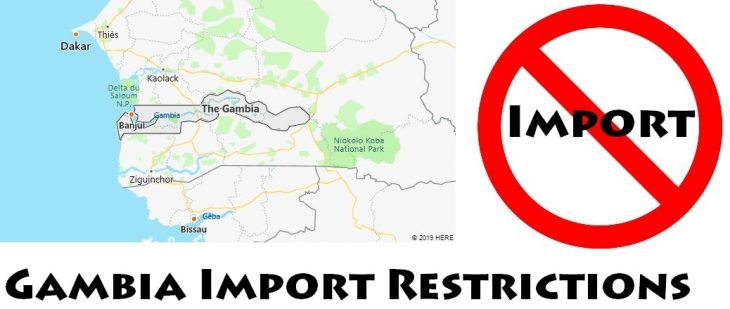Gambia Import Restrictions
In order to enter Gambia, certain goods are subject to specific controls and, regardless of their value and quantity, they require the consent of Gambia government, preferably, license must be obtained prior to passage through the customs, preventing the goods from being retained. On this page, you will see what kinds of items are prohibited from entering the Gambia, and which items need special documentation before exporting to Gambia.
Import restrictions
Senders should determine import restrictions from Gambian authorities before posting:
- Bees
- Firearms
- Leeches
- Medicines
- Parasites and insect killers
- Plants and parts of plants
- Silkworms.
Special documentation
Commercial goods require an invoice in duplicate.
Prohibitions
In addition to items prohibited by Dangerous and Prohibited Goods & Packaging Post Guide and ECI International Courier Regulations, Gambia prohibits subversive items.














































